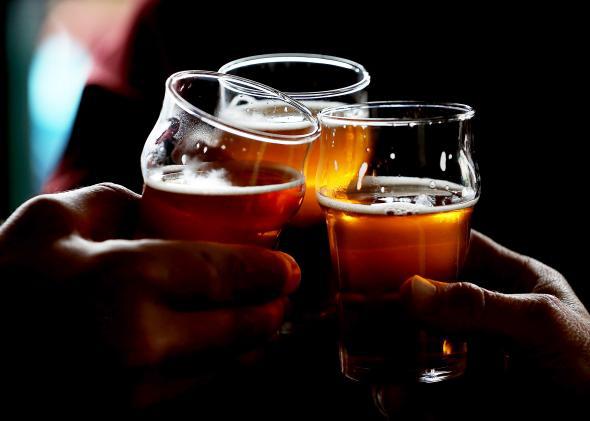Massachusetts Gov. Deval Patrick is waging a war on one of the state’s most archaic systems: liquor licensing. The governor is pushing to lift a population-based cap on the allotment of liquor licenses in most of the state’s towns and cities as part of a broad piece of legislation on economic growth and opportunity. The system dates back to the early 1900s, when Boston myth holds that prudish politicians feared their Irish peers would lead the city into “unruly Catholic drunkenness” and decided to place a strict cap on the allowable number of permits. But Massachusetts is still stuck with the restrictive policy more than a century later, and it’s terrible for local economies and businesses.
Today, when restaurant and bar owners look to obtain a liquor license in an area that has already reached its quota, they must either find someone willing to sell an existing one on the secondary market, or they must appeal to state lawmakers for an additional permit. In recent years, the price of buying a license to serve all alcohol in Boston on the secondary market has soared as high as $450,000. More limited permits to pour beer and wine can cost tens of thousands of dollars. That’s almost as absurd as the $1 million that New York City taxi medallions infamously fetch at auction—not to mention a prohibitively high expense for a new restaurant trying to gain a foothold in the market.
Unfortunately for new restaurants, a liquor license is often dearly needed to survive. Alcoholic beverages typically account for 20-plus percent of sales at independent restaurants and have significantly higher profit margins than food items, according to data from food industry consulting firm Technomic. The ability to serve alcohol “isn’t a 100 percent dealbreaker” for full-service restaurants that focus on dinner, but “certainly makes it easier to be successful,” says David Henkes, Technomic’s head of beverage alcohol research. “If you’re going to get started on the right foot you really need to have that liquor license and be able to offer a full experience to the guest,” he explains.
Eric Nakajima, assistant secretary for innovation policy in the Massachusetts Executive Office of Housing and Economic Development, describes the Massachusetts’ liquor license policy as setting an “arbitrary formula for what should be a local process.” In most other states, he says, the process of approving and doling out liquor licenses would be handled locally. The problem is that the cap and the secondary market it created is now so deeply entrenched that many existing liquor license holders don’t want to see it done away with—lifting the quotas would cause the value of their permits to plunge.
What all of this means is that liquor licenses in Boston are tied up not just with local economies but also with local politics and power. Former state Sen. Dianne Wilkerson and a Boston councilman were both convicted of accepting bribes to help clubs obtain liquor licenses. Steve Grossman, the state treasurer and overseer of the Alcoholic Beverages Control Commission, was criticized in 2011 for accepting $45,000 in political contributions from bar owners and liquor distributors. “Communities that run out of liquor licenses need to go to the Legislature hat in hand,” the Boston Globe wrote in a recent editorial. “For lawmakers, it’s a tangible form of power, and potentially a rich source of campaign cash.”
Bringing new restaurants and bars into an area is a great way to spur economic development and revitalize communities, just as capping one of the key resources that makes those eateries financially viable is a surefire way to hamper those goals. Massachusetts has an easy and likely inexpensive way of fixing the problem. But when the relics of Puritan culture are so entrenched in a state’s culture and economy, they die especially hard.
